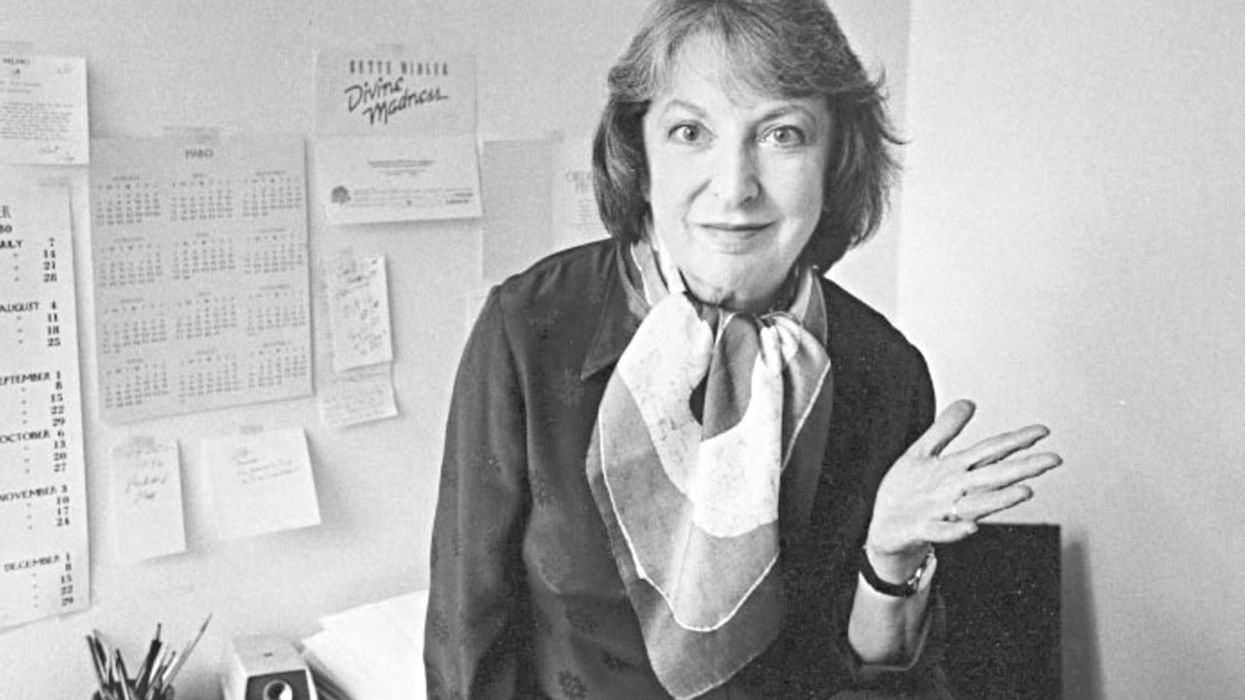
Pauline Kael was a renowned film critic whose impact on the art of film criticism is still felt today. Kael's writing style was characterized by its wit, passion, and intellectual rigor, and her work has been praised for its influence on the field of film criticism.
Throughout her career, Kael wrote for several publications, including The New Yorker, where she became one of the magazine's most influential writers. Her reviews were known for their insight and sharpness, and she was not afraid to take on established directors and films. In this article, we will explore the life and work of Pauline Kael, and examine her contributions to the field of film criticism.
Pauline Kael become the topic on every film lover's mind after several sources speculate that Quentin Tarantino's final film, The Movie Critic, will follow Kael or a protagonist like Kael through her time in 1970s Hollywood. But who is she? Why does she matter to film history and its evolution?
Let's dive in.
Who Was Pauline Kael?
Pauline Kael (1919-2001) was a prominent American film critic known for her passionate and often controversial reviews. She began her career writing for various small publications and worked as a freelance writer before being hired as a staff critic for The New Yorker in 1968, where she remained until her retirement in 1991.
Kael was known for her vivid, energetic prose and her willingness to challenge conventional critical wisdom. She championed many young and innovative filmmakers, such as Martin Scorsese, Brian De Palma, and Robert Altman, while also taking on established figures like Alfred Hitchcock and John Ford.
Kael's reviews were often highly personal and infused with her own opinions and emotions, leading some critics to accuse her of being biased or unprofessional. Nevertheless, her writing had a significant impact on the way films were discussed and appreciated in the United States, and she remains a revered figure in the world of film criticism.
If you want to know more, I highly recommend that you check out the documentary,What She Said: The Art of Pauline Kael.
Pauline Kael's Most Famous Movie Reviews
Kael's sensibility as a film critic was second to none. She fully engaged with every film she watched, giving herself over the film, and treating it with respect if she felt like it treated her with respect. She was probably one of the reasons that the American auteur filmmakers that we love, adore, and study today were able to make a name in Hollywood as passionate, rule-breaking lovers of cinema who simply wanted to make high and low art.
To get a better sense of who Kael as an influence on cinema, read some of her most famous movie reviews:
- Bonnie and Clyde (1967): “The audience is alive to it. Our experience as we watch it has some connection with the way we reacted to movies in childhood: with how we came to love them and to feel they were ours — not an art that we learned over the years to appreciate but simply and immediately ours."
- Last Tango in Paris (1972): "The movie breakthrough has finally come. Exploitation films have been supplying mechanized sex — sex as physical stimulant but without any passion or emotional violence."
- Nashville (1975): "Is there such a thing as an orgy for movie-lovers — but an orgy without excess? At Robert Altman’s new, almost-three-hour film, Nashville, you don’t get drunk on images, you’re not overpowered — you get elated. I’ve never before seen a movie I loved in quite this way: I sat there smiling at the screen, in complete happiness. It’s a pure emotional high, and you don’t come down when the picture is over; you take it with you."
- Something Wild (1986): "This comedy isn’t just about a carefree wacko-rebel heroine and a pompous man; it’s about crossing over—about getting high on anarchic, larcenous behavior and then being confronted with ruthless, sadistic criminality. Something Wild is really screwball: it breaks conventions and turns into a scary slapstick thriller."
Why Is Quentin Tarantino Interested in Pauline Kael?
Quentin Tarantino is known to be a big fan of Pauline Kael and has cited her as one of his biggest influences as a filmmaker. Tarantino has said that he was particularly drawn to Kael's energetic and personal writing style, which he felt reflected his approach to filmmaking.
In interviews, Tarantino has talked about how he devoured Kael's reviews when he was a young film student and was inspired by her willingness to take on established critical opinions and champion films that other critics overlooked or dismissed. He has also credited Kael with helping to shape his understanding of cinema as an art form that can be both intellectually stimulating and emotionally thrilling.
According to numerous reports, Kael might be the center of Tarantino's final film, The Movie Critic.
Summing Up Film Critic Pauline Kael's Career
Pauline Kael was a singular talent whose impact on the world of film criticism can still be felt today. Her writing was characterized by its boldness, its passion, and its unshakable belief in the power of movies to move, challenge, and entertain us.
Kael's willingness to engage with films on a personal level, and to champion films that other critics dismissed, helped to create a new kind of film criticism that celebrated movies as both an art form and popular entertainment.
While Kael was not without her critics, her legacy as a writer and thinker remains a vital part of the history of cinema. By continuing to engage with her writing and ideas, we can deepen our appreciation for movies and how they shape and reflect our culture. In this way, Kael's legacy lives on, as a reminder of the transformative power of film and the enduring importance of great criticism.
Let me know your thoughts in the comments.

 "'Back Home"via Mercedes Arutro
"'Back Home"via Mercedes Arutro 'Back Home'via Mercedes Arutro
'Back Home'via Mercedes Arutro 









